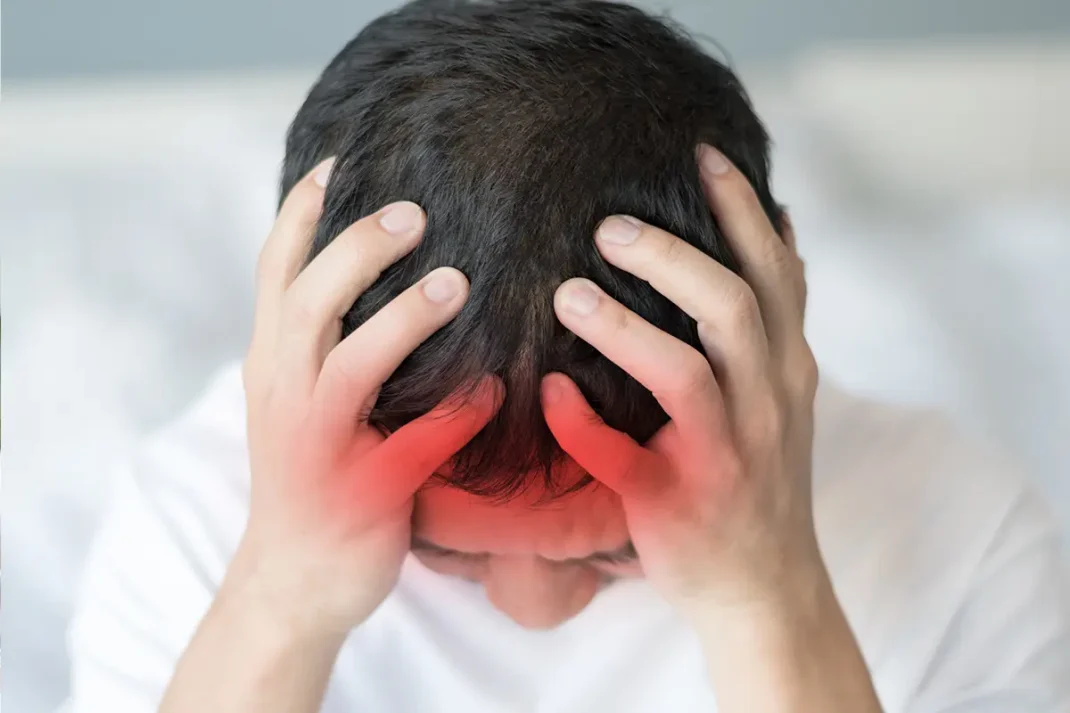Headache, is a kind of ache occurs at head. Sometimes it occurs at neck, shoulders and at upper side of the back. Also It is one of the most common ache people experience. Nearly all of people suffers this ache from different type of reasons. This aches generally uncritical and they the pain disappers by itself
What are the types of headache?
There is fourteen main group and hundreds of sub-groups are categorized by the International Headache Society. Along with that this type of aches categorized two differrent types too. These are the primary headaches which is in sight as itself, not as a symptom of any disease. These are also the most common type which experts define as migraine, tension headache and cluster headaches. Secondary group are the aches which show itself as a symptom of another disease. (cerebrovascular disorders, nervous system diseases, brain neoplasm, eye diseases, sinüsitis, meningitis etc.)
What is Migraine?
Migraine is a type of headache that occurs as a result of changes in the nerves and blood vessels in the brain.
- Usually the pain is on one side of the head
- The pain is throbbing, moderate or severe
- Nausea, vomiting occurs
- Comes in attacks
- Pain lasts 4 to 72 hours without treatment
- Visual disturbances may occur at the onset of pain (migraine with aura type)
- Pain increases with head movements and physical activity
- Patient can be bothered by light and sound.
What is the types of Migraine Headache?
There is two type of migraine. They called migraine with aura and migraine without aura. Migraine aura is the complaints encountered in migraine with pre-symptom. Most of these symptoms are vision related. The patient reports seeing bright lights, zig-zag lines or blurred vision, loss of vision in one area. Also it can be seen just an area and eye strain. In addition, numbness in the arms and legs, dizziness, and speech disorders are also seen. It usually takes 20-30 minutes and then the pain starts. Aura findings completely improve.
Tension-Headaches

Tension-type headache is generally thought to be caused by stress, but stress is only one of the factors that trigger the pain. In tension-type headache, it causes a feeling of pressure as if there is a band around the head. The tension type is the most common type and its causes are not yet known.
To manage this type of headache; it is necessary for the person to gain healthy habits, to use medication only when necessary, to cope with headaches without medication and to manage stress well.The main symptoms of tension-type headaches are; headache with a feeling of fullness in the head, a feeling of pressure on the forehead or temples, tenderness in the scalp, neck and shoulder muscles. Tension-type headaches are divided into two main categories, episodic and chronic.
Episodic tension headaches can range from 30 minutes to a week. Also this aches occur less than 15 days a month for three months and can become chronic.
The pain can last for hours or be continuous. If the headache occurs on 15 or more days a month for three months, it is considered chronic tension ligament pain.
Cluster-Type Headaches
This type of headaches recur at certain intervals or cluster in certain periods. It is one of the most severe types of headaches. it is an intense pain that often wakes you up in the middle of the night, which oftenly show itself on one side of your head or around one eye.
Periods of frequent headache attacks, can last for weeks or months. After the headache attacks stop completely, it enters the remission period. During this quiet period, there may be no headaches for months or years.
Cluster headaches are fortunately rare and not life-threatening. When it comes to treatments can help cluster headache attacks to be shorter and milder. In addition, drug treatments can reduce the number of cluster pain attacks. Cluster headaches begin suddenly with no previous symptoms.
Frequent signs and symptoms;
- A very excruciating pain that is usually felt around one eye or on one side of the head. But may radiate to other parts of the face or head, neck or shoulder
- one-sided pain
- Insomnia, restlessness,
- excessive tears
- eye redness on the affected side
- Nasal congestion with or without discharge on the affected side
- Sweaty, pale facial skin
- Swelling around the eyes on the affected side
- Falling on the eyelid.
To have more information please visit our website.
Resting in a quiet and dark place generally helps. Beyond that, try the hot or cold compress. Massage or small amounts of caffeine may also helps to relieve.
Blood vessels, muscles around the head and neck and also the chemical activity in brain are the main causes for headaches.
A sudden, painful, severe headache with fever may cause problems. In that situation consult with your doctor.